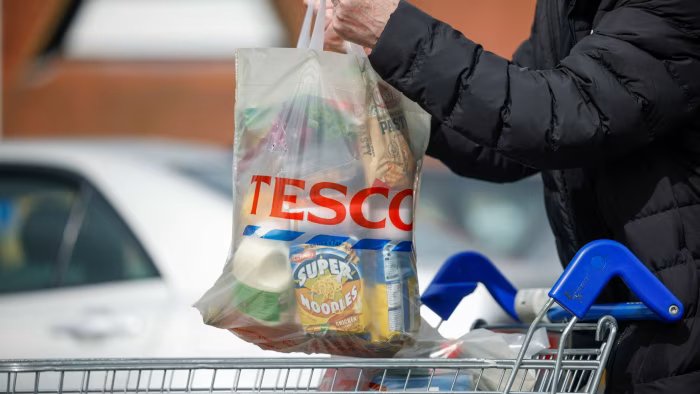Unlock the Editor’s Digest for free
Roula Khalaf, Editor of the FT, selects her favourite stories in this weekly newsletter.
Leading supermarkets in the UK are braced for a multimillion-pound tax hit after being told they will not secure a reprieve from higher business rates in the Budget following a Treasury U-turn.
Big grocers have spent the past few months warning the government that without the reprieve, higher business rates will inevitably lead to more expensive food bills for consumers.
Supermarket chains had been reassured in October by signals from the Treasury that it would remove large retail premises from the top band of business rates, which focuses on properties with a rateable value of more than £500,000.
However, Treasury officials had now told the grocers these premises would not be excluded from the highest bracket of the property-based tax in chancellor Rachel Reeves’ Budget on Wednesday, two people familiar with the situation said.
The Financial Times revealed in October that the Treasury’s outline plans to carve out retailers from the top band of business rates — a move that was meant to show the finance ministry had listened to supermarkets. They had previously complained about a rise in employer national insurance contributions in last year’s Budget.
“This was not just speculation — this had been communicated. The fact they are changing things at the last minute after months of leading us up the garden path really shows the mess of their miscommunication around this Budget,” one industry person briefed on the latest business rates plan said.
The Treasury declined to comment.
Reeves has made tackling inflation one of her priorities in the Budget but her fiscal room for manoeuvre to offer leading supermarkets a business rates reprieve has been squeezed by her decision not to raise income tax rates.
The retail industry pays about 20 per cent of business rates bills, which generate about £30bn annually for the Treasury.
Business rates are calculated by applying a tax rate — or “multiplier” — to the annual rateable value of a property.
Last year the government proposed increasing business rates on properties with a rateable value of more than £500,000 so as to afford making a temporary discount on the tax for small retail and hospitality premises a permanent arrangement.
But leading supermarkets argued the move would make some of their large stores unprofitable. The British Retail Consortium, a trade body, has warned that 400 shops could close.
BRC chief executive Helen Dickinson said: “We have been crystal clear with our ask. Give smaller retailers permanent discounts but not at the expense of larger retailers.”
Last month Tesco reported better than expected results and said it was on track to make £3bn in operating profit in 2025-26, prompting some discussions inside the Treasury about why the government should be giving handouts to Britain’s biggest retailer, people familiar with the situation said.
Other people said the Treasury was trying to soften the blow to supermarkets on business rates by highlighting how Reeves’ decision to U-turn and not raise income tax would help consumers, and so grocers would also benefit from their customers being better off.
These people said the Treasury had suggested there would be some other concessions, such as a lower multiplier for calculating business rates or tapering of the tax for the most valuable properties, which could mean some retailers would be better off.
However, they added this did not address the central issue that larger stores would be paying more in business rates than before.
“If the multiplier goes down then that is a function of the market, not government policy,” one person said.
Another said companies had not received the latest rateable valuations of their properties from the Valuation Office Agency, and so would be “flying blind”.

